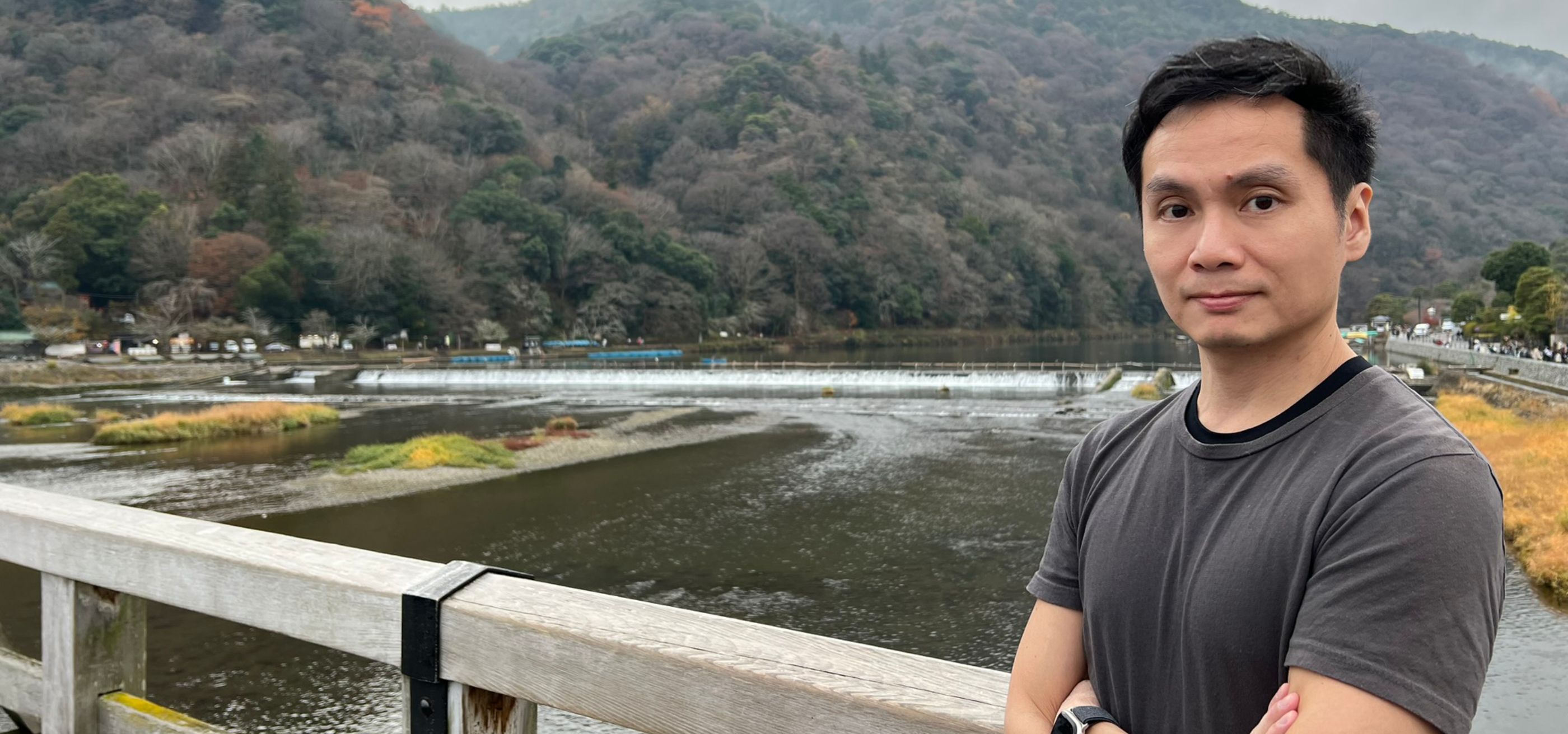It has been over eight years since Lawrence Pak first started teaching at DigiPen (Singapore), and witnessing his students blossom into competent artists over time is still a privilege he is very thankful for. As the faculty chair of the Department of Digital Arts, Lawrence and his team equip students with all manner of digital production and asset creation skills to prepare them as professionals for the fields of games, animations, visual media, and beyond.
 Lawrence himself began his career in 2003 as a CG artist creating 3D assets and floorplans for Dynaforce, a local company specializing in bespoke wellness products and solutions. Though he was doing well there, it had always been Lawrence’s dream to enter the up-and-coming video game industry. An opportunity presented itself when Koei Tecmo Singapore opened its doors in 2004 as a subsidiary of the renowned Japanese development studio. Lawrence successfully applied and joined their new team as a junior CG artist in 2005.
Lawrence himself began his career in 2003 as a CG artist creating 3D assets and floorplans for Dynaforce, a local company specializing in bespoke wellness products and solutions. Though he was doing well there, it had always been Lawrence’s dream to enter the up-and-coming video game industry. An opportunity presented itself when Koei Tecmo Singapore opened its doors in 2004 as a subsidiary of the renowned Japanese development studio. Lawrence successfully applied and joined their new team as a junior CG artist in 2005.
At that time, Koei Tecmo was well-known for its Romance of the Three Kingdoms title. Lawrence was tasked to work on the production team for the online version of the game, Romance of the Three Kingdoms Online. That was the first MMORPG to be developed in Singapore, and Lawrence was grateful for the opportunity to grow and develop the fledgling local games industry and its community.
In 2008, Lawrence got his next big break when he was selected to do an internship attachment at Koei Tecmo Japan in Yokohama. He relished the chance to live and work overseas, immersing himself in the local culture there. He returned to Singapore a year later and assumed a new role as the environment lead artist, working on numerous exciting Koei Tecmo titles such as Dynasty Warriors, Samurai Warriors, and the Nobunaga’s Ambition series.
In the years he spent at Koei Tecmo Singapore, Lawrence found fulfilment not just in creating AAA games, but also in mentoring younger team members. It was his responsibility to guide and help them meet the studio’s high standards of artistic production. Seeing their progression within the company gave him joy and a profound sense of achievement. This experience prompted Lawrence to reflect on his next career move after spending a decade in the gaming industry. Eventually, in late 2015, the then faculty chair of the Department of Digital Arts, Marc Tan, reached out to Lawrence about a teaching role at the Institute. Lawrence gladly accepted and began lecturing at DigiPen (Singapore) the following January.
Lawrence considers himself a strict yet approachable lecturer, and he aims to encourage an openness in his classes where students feel comfortable asking questions. He currently teaches DAA 2300 (3D Environment and Level Design), DAA 3315 (Texturing for 3D), and UXG 3825 (Introduction to 3D Production for Designers). While he enjoys all his courses, DAA 2300 is particularly special to him. In that module, students learn the process for creating an environment using Unreal Engine. “Guiding students through the process of transitioning their ideas from an initial 2D concept to seeing it come to life in a 3D environment that they can navigate within Unreal Engine is extremely fulfilling,” Lawrence shares.

Academics and technical skills aside, Lawrence is also passionate about imparting the right values and attitudes to his students. In order to be a successful digital artist, he says that one must possess an eye for detail and be an effective communicator. It is also important to be adaptable and to constantly upskill in order to keep pace with the changing environment, an area in which Lawrence has led by example. In 2020, when the COVID-19 pandemic was still running rampant, he enrolled for an MA in Digital Management from Teesside University. “It has always been my intention to pursue higher education after obtaining my diploma,” Lawrence says. “COVID-19 was also a time when there were many uncertainties, and I felt that it was more important than ever to invest in personal growth.” He graduated with distinction from the program 18 months later.
Ultimately, Lawrence quips that the future holds exciting opportunities for digital artists, but one cannot be complacent. “With rapid technological advancements and the use of technological tools to streamline work processes, artists must embrace versatility and extend their skills beyond art creation alone,” Lawrence says. He adds that one way to do so is through acquiring basic scripting knowledge to develop tools to automate or streamline repetitive work processes, something that students in the BFA in Digital Art and Animation have the opportunity to learn about in their coursework at DigiPen (Singapore).
Starting from September 2023, DigiPen (Singapore)’s BFA in Digital Art and Animation will incorporate more learning pathways to equip students with the skills needed to pursue a career in the field of technical art. All BFA students will be introduced to scripting and computing modules early in the curriculum to improve their technical literacy, making them valuable and versatile artists in their future workplaces.
